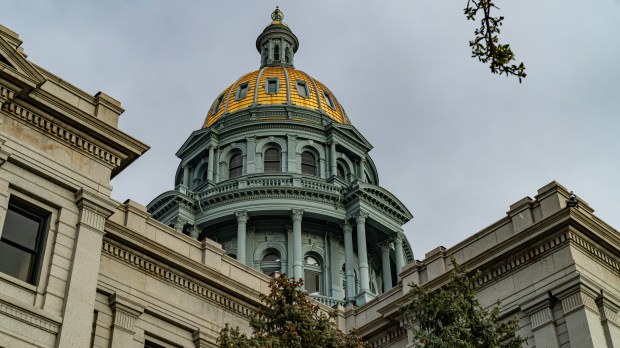Voting for a law that facilitates the killing of unborn children is a “gravely sinful action,” and any Catholic legislator who did so has placed himself outside the communion of the Church, said the Catholic bishops of Colorado.
The bishops issued an open letter to state legislators this week, calling HB22-1279, the Reproductive Health Equity Act (RHEA), “one of the most extreme abortion bills in the country.”
RHEA allows for abortion from conception until birth and for any reason, including the child’s race, sex, or a disability, the bishops said.
“According to some of the lawmakers supporting RHEA, this new law is designed to make our state an abortion destination and ‘safe haven,’” they said. “They expect pregnant mothers to come flooding in from surrounding states for abortions if Roe v. Wade is overturned. It causes us profound sadness and distress to know that some Catholic legislators voted for this.
“During the voting on the Reproductive Health Equity Act, it became clear by their public votes that several Catholic lawmakers support ending the lives of unborn children and declaring that a ‘fertilized egg, embryo or fetus’ has no ‘independent or derivative rights’ in Colorado,” the bishops continued. “These pre-born babies are worth less than those who have had the gift of being born, according to this morally bankrupt logic. At the same time, we would like to publicly thank state Senators Barbara Kirkmeyer, Kevin Priola and Jim Smallwood and Representative Andres Pico, Catholic lawmakers who voted to protect the unborn and against allowing our state to strip them of their God-given right to life.”
Voting for RHEA, they said, was participating in a gravely sinful action because it facilitates the killing of innocent unborn babies, and those Catholic politicians who have done so have very likely placed themselves outside of the communion of the Church.”
The prelates quoted last year’s U.S. Bishops’ statement, “The Mystery of the Eucharist in the Life of the Church”: “To receive the Body and Blood of Christ while in a state of mortal sin represents a contradiction. The person who, by his or her own action, has broken communion with Christ and his Church but receives the Blessed Sacrament, acts incoherently, both claiming and rejecting communion at the same time. It is thus a counter sign, a lie — it expresses a communion that in fact has been broken.”
The letter, signed by Archbishop Samuel J. Aquila of Denver; Auxiliary Bishop Jorge H. Rodriguez of Denver; Bishop Stephen J. Berg of Pueblo, and Bishop James R. Golka of Colorado Springs, concluded by asking that unless such Catholic legislators make public repentance and receive sacramental absolution in Confession that they voluntarily refrain from receiving Holy Communion.
Brittany Vessely, executive director of the Colorado Catholic Conference, said in an email that legislators’ repentance must be public because of the public scandal their votes caused. She pointed to this paragraph of the bishops’ letter:
Finally, when other Catholics see public figures receiving Jesus in such a spiritual state their resolve to be faithful to the Gospel can be weakened. A Catholic politician or public figure leading or encouraging others to do evil is a failure to respect the souls of others and is what the Church defines as “scandal.”
“The dimension of scandal involved in this action makes it a public sin, which leads others to sin (see Catechism of the Catholic Church, 2284-2287),” Vessely said. “The repentance required is logically proportionate to that offense. It consists in a repentance known to others, at least to those who may have been led astray. It entails the public acknowledgement on the part of these politicians that they were wrong in supporting and promoting a civil law, which fosters the killing of innocent human beings, and that they intend not to do it again.”
The letter said that it shouldn’t be up to a priest or another minister who is distributing Communion to single out offending legislators. “The burden from [legislators’] decision does not rest upon the shoulders of priests, deacons or lay Extraordinary Ministers of the Eucharist,” it said. “It rests upon the consciences and souls of those politicians who have chosen to support this evil and unjust law.”


